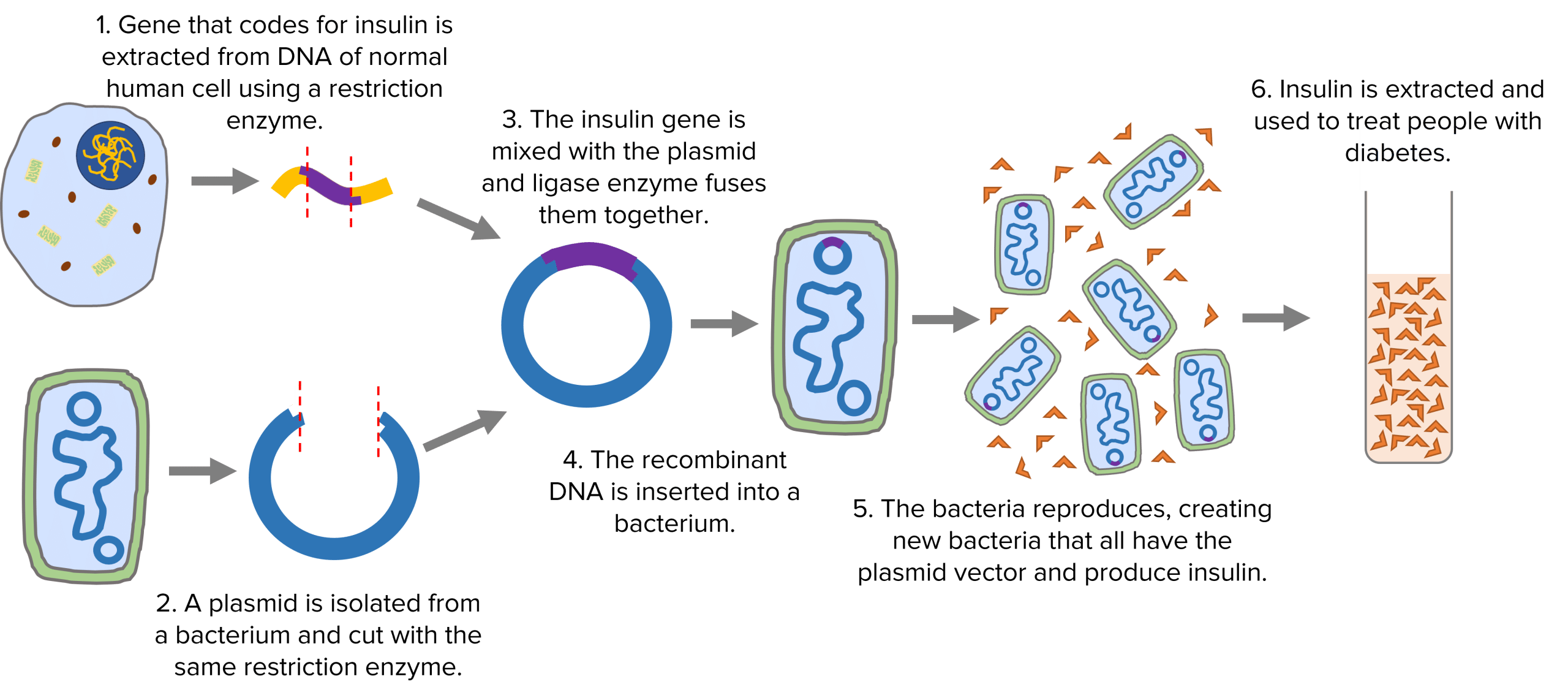Biotechnology
Biotechnology Revision
Biotechnology
Biotechnology is where humans manipulate living things to produce products for their own use. Examples include the production of mycoproteins, insulin and genetically modified (GM) crops.
Mycoprotein
Biotechnology is the manipulation of living organisms and processes to create products useful for humans. The production of mycoprotein is an example of this.
Mycoprotein is a protein-rich meat substitute for vegetarians. It is made the fungus Fusarium in large fermenters. The fermenters provide everything the fungus needs to grow efficiently such as optimum pH, optimum temperature and lots of oxygen and glucose syrup for aerobic respiration. The biomass is harvested and purified before being turned into food.
Production of Human Insulin
Bacteria can be genetically engineered to produce human insulin which is used to treat diabetes.
- The gene that codes for insulin production is cut out of a normal human chromosome using a restriction enzyme. Restriction enzymes ensure that the correct gene is cut out and leaves unpaired bases at either end called sticky ends.
- A plasmid is removed from a bacteria and cut open using the same restriction enzyme which will leave the same sticky ends as the insulin gene.
- The plasmid, insulin gene and enzyme ‘ligase‘ are mixed together. Ligase will cause the sticky ends from the plasmid and insulin gene to fuse together creating recombinant DNA.
- The recombinant DNA is inserted into a bacteria cell.
- The bacterium is grown under controlled conditions in a vat. All the bacteria produced will produce insulin.
- The insulin is collected and purified before being used to treat people with diabetes.

GM Crops
In developing countries, there are often problems with food security or a lack of food variety. Crops can be genetically modified to help overcome these issues.
Crops can be modified to be resistant to certain pests and diseases or to grow better in extreme weather conditions such as droughts. This will improve crop yields, providing food for people who need it. Crops can also be genetically modified to be more nutritious e.g. golden rice produces a chemical that is converted to vitamin A in the body.
However, sometimes it is the expense of food, not the availability, that is the issue so GM crops will not be very successful. GM seeds will be even more expensive than normal seeds and will cause countries to become dependant on GM seed companies. Sometimes it may be the soil quality that limits crop growth so even GM crops will not be able to survive.
Biotechnology Example Questions
Question 1: What type of fungus is mycoprotein made from?
[1 mark]
Fusarium
Question 2: Name 2 types of enzyme that are involved in the genetic engineering of insulin producing bacteria.
[2 marks]
Question 3: What is golden rice?
[2 marks]
Golden rice is a type of rice that is genetically engineered to produce a chemical that turns into vitamin A in the body.


